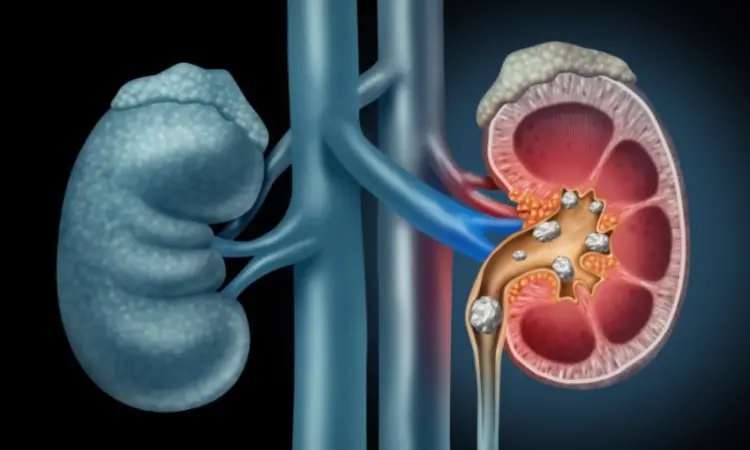- Home
- Medical news & Guidelines
- Anesthesiology
- Cardiology and CTVS
- Critical Care
- Dentistry
- Dermatology
- Diabetes and Endocrinology
- ENT
- Gastroenterology
- Medicine
- Nephrology
- Neurology
- Obstretics-Gynaecology
- Oncology
- Ophthalmology
- Orthopaedics
- Pediatrics-Neonatology
- Psychiatry
- Pulmonology
- Radiology
- Surgery
- Urology
- Laboratory Medicine
- Diet
- Nursing
- Paramedical
- Physiotherapy
- Health news
- Fact Check
- Bone Health Fact Check
- Brain Health Fact Check
- Cancer Related Fact Check
- Child Care Fact Check
- Dental and oral health fact check
- Diabetes and metabolic health fact check
- Diet and Nutrition Fact Check
- Eye and ENT Care Fact Check
- Fitness fact check
- Gut health fact check
- Heart health fact check
- Kidney health fact check
- Medical education fact check
- Men's health fact check
- Respiratory fact check
- Skin and hair care fact check
- Vaccine and Immunization fact check
- Women's health fact check
- AYUSH
- State News
- Andaman and Nicobar Islands
- Andhra Pradesh
- Arunachal Pradesh
- Assam
- Bihar
- Chandigarh
- Chattisgarh
- Dadra and Nagar Haveli
- Daman and Diu
- Delhi
- Goa
- Gujarat
- Haryana
- Himachal Pradesh
- Jammu & Kashmir
- Jharkhand
- Karnataka
- Kerala
- Ladakh
- Lakshadweep
- Madhya Pradesh
- Maharashtra
- Manipur
- Meghalaya
- Mizoram
- Nagaland
- Odisha
- Puducherry
- Punjab
- Rajasthan
- Sikkim
- Tamil Nadu
- Telangana
- Tripura
- Uttar Pradesh
- Uttrakhand
- West Bengal
- Medical Education
- Industry
Ketorolac a preferable choice to narcotics for pain relief in post-ureteroscopy patients: Study

Nonsteroidal anti-inflammatory drugs (NSAIDs) demonstrate are similarly efficient and safe in pain control post-ureteroscopy as compared to opioids, suggests a study published in The Journal of Urology.
Pain is one of the major causes of unprecedented emergency department visits and readmissions after ureteroscopy, making postoperative analgesic stewardship is a grave matter to look into amid the current opioid epidemic.
A group of researchers from U.S.A. conducted a double-blinded, randomized controlled trial, with noninferiority design, comparing nonsteroidal anti-inflammatory drugs to opiates for postoperative pain control in patients undergoing ureteroscopy for urolithiasis.
The researchers randomly divided the total 81 participants in either oxycodone (5 mg) (n=43) group or ketorolac (10 mg) (n=38) group, both the medicines to be taken as needed, with 3 nonblinded oxycodone rescue pills for breakthrough pain. The 2 groups had comparable patient, stone, and perioperative characteristics.
The primary study outcome was visual analogue scale pain score on postoperative days 1–5.
While secondary outcomes included medication utilization, side effects, and Ureteral Stent Symptom Questionnaire scores.
The results of the study are as follows:
No differences were found in postoperative pain scores, study medication or rescue pill usage, or side effects.
Higher maximum pain scores on days 1–5 and higher questionnaire scores correlated with analgesic usage, irrespective of treatment group. Patients receiving ketorolac reported significantly fewer days confined to bed.
There was no difference in unscheduled postoperative physician encounters.
The researchers concluded that this was the first double-blinded randomized controlled trial comparing nonsteroidal anti-inflammatory drugs and opiates post-ureteroscopy, and it demonstrated noninferiority of nonsteroidal anti-inflammatory drugs in pain control with similar efficacy, safety profile, physician contact and notably, earlier convalescence as compared to the opioid group. Thus, providing a piece of strong evidence against routine opioid use post-ureteroscopy, justifying continued investigation into reducing postoperative opiate prescriptions.
Reference:
A study titled, "SKOPE—Study of Ketorolac vs Opioid for Pain after Endoscopy: A Double-Blinded Randomized Control Trial in Patients Undergoing Ureteroscopy" by Fedrigon D published in The Journal of Urology.
Dr. Shravani Dali has completed her BDS from Pravara institute of medical sciences, loni. Following which she extensively worked in the healthcare sector for 2+ years. She has been actively involved in writing blogs in field of health and wellness. Currently she is pursuing her Masters of public health-health administration from Tata institute of social sciences. She can be contacted at editorial@medicaldialogues.in.
Dr Kamal Kant Kohli-MBBS, DTCD- a chest specialist with more than 30 years of practice and a flair for writing clinical articles, Dr Kamal Kant Kohli joined Medical Dialogues as a Chief Editor of Medical News. Besides writing articles, as an editor, he proofreads and verifies all the medical content published on Medical Dialogues including those coming from journals, studies,medical conferences,guidelines etc. Email: drkohli@medicaldialogues.in. Contact no. 011-43720751


